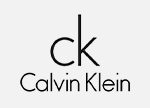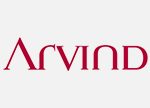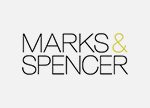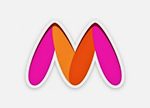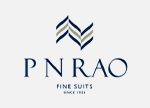The Course
MBA in Fashion Business and Event Management
Master the art of Business and Soiree
These postgraduate programmes are designed for participants looking to enter the design world, and provide a complete education allowing participants to acquire the necessary knowledge and skills to pursue a career in the chosen field.
BENGALURU
Duration
2 years (full-time)
Eligibility
Any degree from the
UGC recognised university
Certificate Type
Master Degree
Degree Issuing Authority
Sunrise University
Programme Overview
An MBA in Fashion Business and Event Management can be your launchpad to a fulfilling career in this dynamic and ever-evolving industry. This programmeme will equip you with the knowledge and skills you need to master the business side of fashion. Gain expertise in areas like marketing, finance, operations, and supply chain management, specifically within the context of the fashion industry. Learn how to conceptualize, organize, and execute successful fashion events, from runway shows and product launches to trade shows and influencer marketing campaigns.
With a master’s degree in fashion business and event management, graduates open doors to a diverse array of professional opportunities. From product managers and fashion brand managers to fashion buyers and retail managers, the possibilities are vast. Moreover, some graduates may choose to venture into unrelated fields such as consulting, investing, public relations, marketing, or event organizing. Our graduates find exciting prospects in esteemed organizations such as fashion houses, retailers, periodicals, and design firms. The MBA in Fashion Business and Event Management empowers students to thrive in the dynamic and ever-evolving world of fashion and related industries.
- PROGRAMME OBJECTIVE
- LEARNING OUTCOMES
- CURRICULUM
- EVALUATIONS
- ASSESSMENTS METHOD
- CAREER OPPORTUNITIES
- PLACEMENTS
- Develop a comprehensive understanding of the evolving dynamics within the fashion and event management industries.
- Familiarize students with the latest Fashion and Event Management tools and technologies, enabling them to work efficiently in these fields.
- Provide in-depth instruction in design and management research methods to prepare students for their final thesis.
- Cultivate a thorough grasp of various key aspects, including Retail Management, Trends and Events prediction, Consumer Behavior, PR Management, Budgeting, and Entrepreneurship.
Upon successful completion of the Master of Business Administration in Fashion Business and Event Management, students will be able to:
- Conduct independent and insightful research on significant topics relevant to the fashion and event management sectors.
- Plan, design, and deliver a wide range of services for diverse industries, such as clothing, media, and events.
- Create effective communication strategies tailored to different media platforms.
- Efficiently manage exhibition and event settings to achieve desired outcomes.
- Recognize and leverage the interconnections between sustainability, technology, and interconnected events in their work.
- Understand and adapt to the intricate operations of textile manufacturing, forecasting, and event planning industries.
- Acquire the knowledge and skills necessary to successfully launch and operate a fashion and/or event management business.
Semester 1
- Fundamentals of Management
- Organizational Behaviour
- Managerial Economics
- Accounts for Managers
- Business Environment
- Human Values
- Business Communication & Technical Writing Skills Lab
- Computer Application Lab
- Practice School – I
Semester 2
- Human Resource Management
- Marketing Management
- Financial Management
- Research Methodology
- Quantitative Techniques & Operation Research
- Entrepreneurship Development & Innovation Management
- Seminar on Contemporary Issues
- Data Science Lab
- Practice School – II
Semester 3
- Entrepreneurship Development & Project Management
- Strategic Management
- Legal Aspects of Business
- Elective I – Dynamics of Fashion
- Elective I – Event Management & Planning
- Elective I – Consumer Behaviour & Psychology
- Elective I – Visual Merchandising
- Managing Innovation
- Summer Internship
Semester 4
- Elective II – Brand Management
- Elective II – Sourcing & Vendor Management
- Elective II – Publicity & Media Management
- Elective II – Exhibition & Space Design
- Elective II – Event Production Process
- Elective II – E-Commerce
- Business Policy
- Summer Training Evaluation
- Major Project
- JD Design Awards
- Case Studies – Gauges students’ ability to adopt research methods to analyse gaps in the market and come up with credible solutions.
- Industrial Visits– Teaches students industry trends and requirements.
- Self-Study– Independent exploration of subjects to support classroom learnings.
- Classroom Lectures– These lectures provide vital information to the students.
- Seminars– Encourages students to debate and argue.
- Studio / Workshop / Laboratory / Practical Sessions– Help students develop creative and practical abilities by simulating the industry.
- Demonstrative– Utilised for required technical subjects.
- Group Work– Encourages students to work as a team and understand the intricacies of working in a team.
- Internal Assessments– Provides an evaluation of students’ learning progression during the entire length of the course.
- Projects– In-class and independent research projects undertaken to demonstrate students’ depth of understanding of the subject.
- Semester Examinations– Time-based formal assessments to test students’ understanding of the subject.
- Presentations– Used in a few subjects to demonstrate communication skills, professionalism, critical thinking and support findings.
- Portfolio Assessment– Exhibits learning from the concept stage to execution.
- Visual Merchandiser
- Trend Forecaster
- Show and Event Producer
- Retail Manager
- PR Agent
- Operations Manager
- Merchandiser
- Marketing Manager
- Educator
- Editor
FAQ
Q: What does MSc. in Fashion Business and Event Management cover?
A: This programme hones event planning skills specific to the fashion industry, along with marketing and business strategies.
Q: What are the course timings?
A: The course usually spans 1.5 to 2 years of full-time study.
Q: What subjects will I study?
A: You will delve into fashion event production, retail management, marketing, entrepreneurship, and business management.
Q: Are placements offered?
A: Yes, the programme often facilitates internships and industry connections.
Q: How important are industry visits?
A: Industry visits offer practical insights into fashion business and event management practices.
Q: Why choose this course?
A: If you aspire to manage fashion events and enterprises, this programme equips you with the skills to excel in this dynamic field.
Q: What are JD Design Awards?
A: JD Design Awards recognize student excellence, providing exposure within the fashion and design industry.
Q: Is the course beneficial?
A: Absolutely, it equips you with skills to navigate the complexities of fashion business and event management.
Q: What is the infrastructure like?
A: The programme offers modern facilities and resources to enhance your learning experience.
Q: Does JD School of Design offer scholarships and fee concessions?
A: Yes, JD School of Design offers a variety of scholarships and fee concessions to help students access education. For more information click here .

